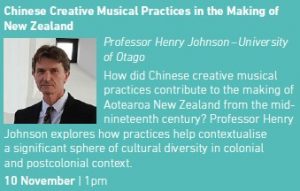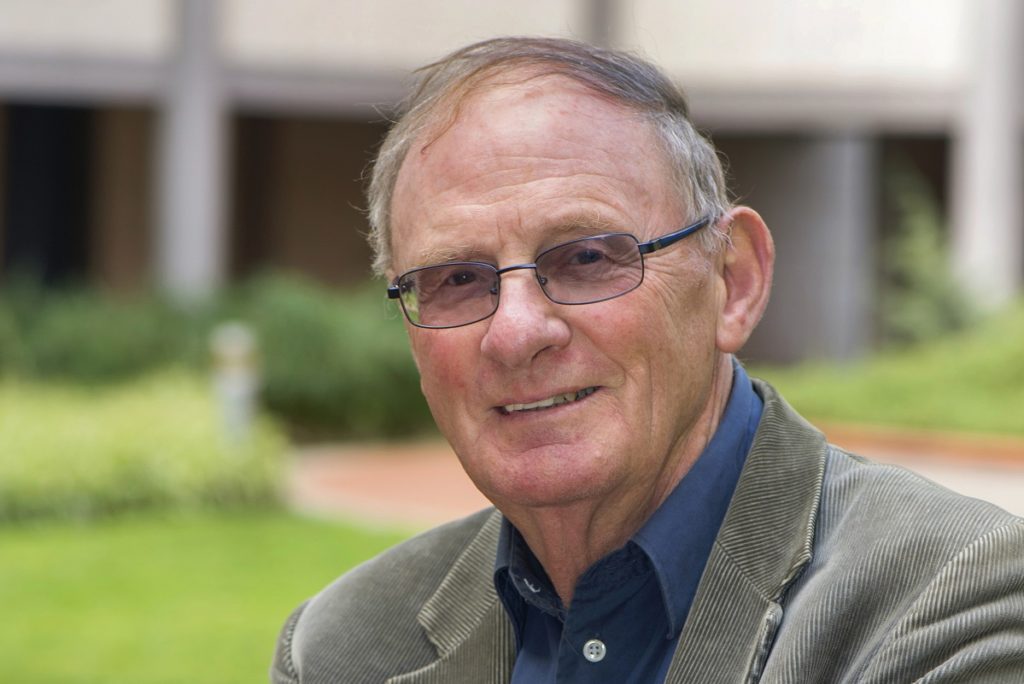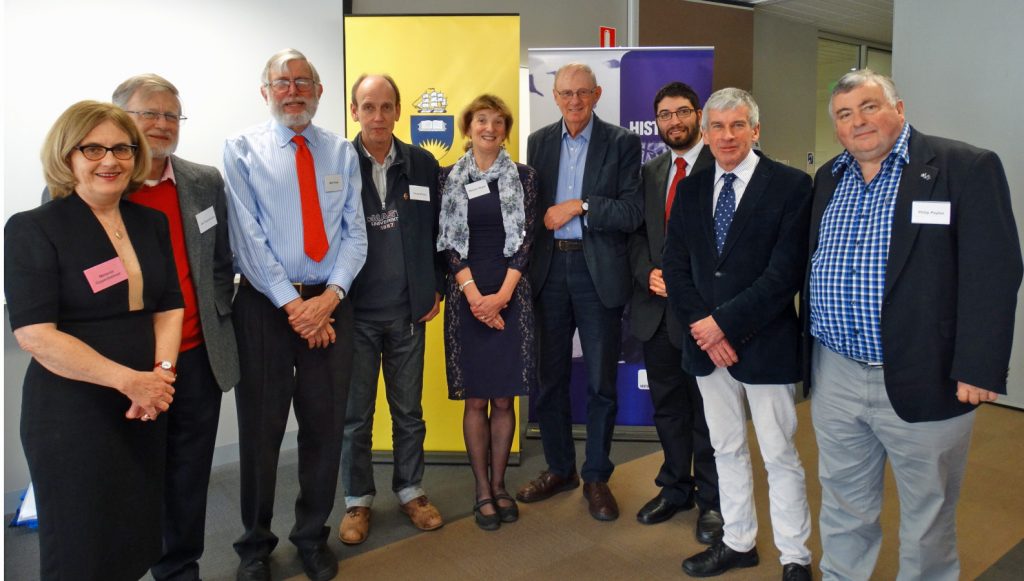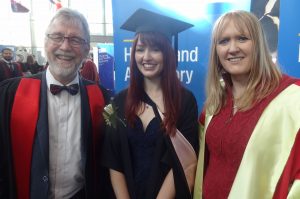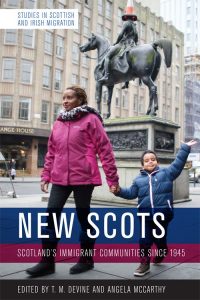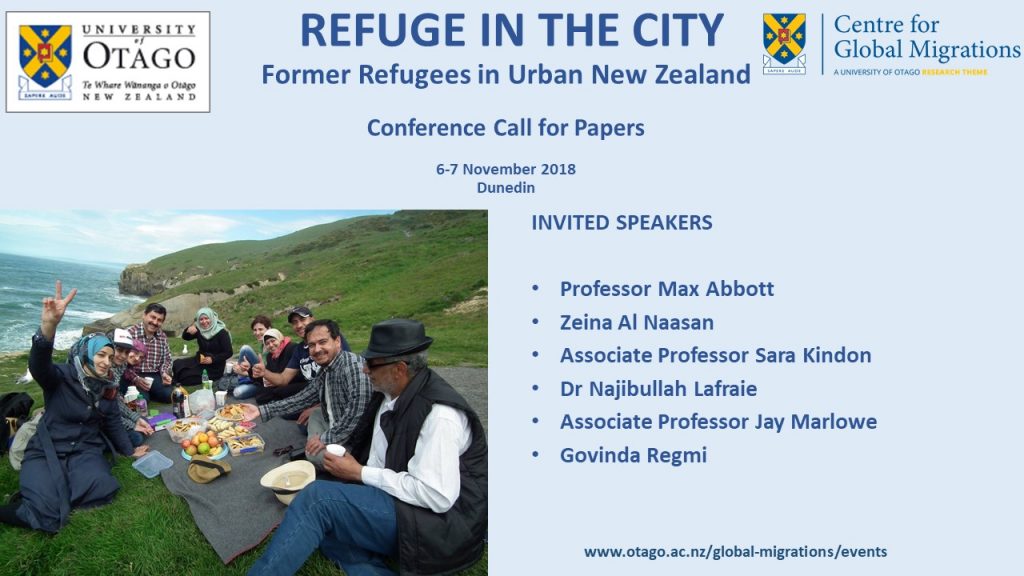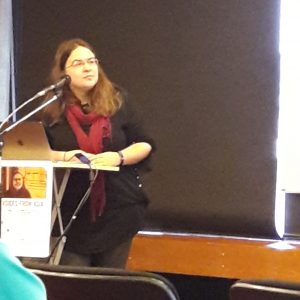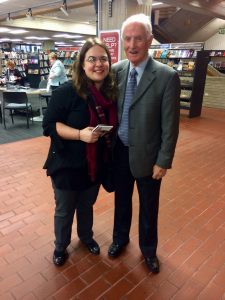Chinese Creative Musical Practices
How did Chinese creative musical practices contribute to the making of Aotearoa New Zealand from the mid-nineteenth century? On Saturday 10 November 2018 at 1pm our member Professor Henry Johnson will explore this question. The talk is part of the 10 year anniversary celebrations of Dunedin’s Chinese Garden.
Those wishing to attend Henry’s talk need to register by emailing: chinesegarden@dcc.govt.nz. Further information about the 10 year anniversary celebrations can be found here.
Professor Eric Richards (1940-2018)
We are deeply saddened to learn of the sudden death in London on 21 September 2018 of Professor Emeritus Eric Richards. Born in 1940 in Denbighshire, Wales, Eric was raised in Shropshire, attended university at Nottingham, and moved in 1963 as a ‘£10 Pom’ to Adelaide. After a stint at Stirling University he was appointed in 1971 to Flinders University. He remained there for the next four decades, during which time he made enormous contributions to the history of the Highland Clearances, migration from Britain and Ireland, and migration to Australia. Eric retired from Flinders in 2012, though remained an active writer and lecturer as well as being a keen tennis player and cyclist.
Among Eric’s major books (including prize winners) are:
- The Genesis of International Mass Migration: The British Case, 1750-1900 (2018)
- Destination Australia: Migration to Australia since 1901 (2009)
- Debating the Highland Clearances (2007)
- Britannia’s Children: Emigration from England, Scotland, Wales and Ireland since 1600 (2004)
- The Highland Clearances: People, Landlords and Rural Turmoil (2000)
- Patrick Sellar and the Highland Clearances: Eviction, Homicide and the Price of Progress (1999)
- A History of the Highland Clearances. Vol 2. Emigration, Protest, Reasons (1985)
- A History of the Highland Clearances. 1. Agrarian Transformation and the Evictions, 1745-1886 (1982)
Eric also edited the Visible Immigrants series of publications.
We were fortunate to have Eric visit Dunedin in January 2010. During his trip he gave a powerful public talk at Otago Settlers Museum about the Highland Clearances (on the anniversary of Robert Burns’ birth), held an erudite seminar on migration to Australia (held on Australia Day), and offered the Immortal Memory at the Dunedin Burns Club dinner.
In 2014 Eric was the Carnegie Trust Centenary Professor at the University of the Highlands and Islands. Two of his recorded seminars are available here and here.
In 2015 Flinders held a seminar in Eric’s honour. The proceedings, published the following year, included a tribute from Professor Philip Payton. It is available here (544KB).
A gentle, warm and kind man, Eric is much loved, deeply missed and never forgotten. Our sincere condolences to Ngaire and all Eric’s family, friends, and colleagues.
Publications from Professor Richard Walter
Professor Richard Walter writes as follows:
New Zealand was the last place on earth to be colonised by humans, and archaeologists sometimes emphasise this fact by talking about the three million year journey from Africa to Aotearoa. But not only was New Zealand the last place settled by people, that settlement event involved what was probably the longest over-sea journey ever undertaken in the preindustrial age. The closest possible origin point for the first settlers of New Zealand lies about 3,000 kilometres to the north east, a bit further than the distance from London to Ankara, and with nothing in between but water. Given the extraordinary nature of the event, archaeologists have long been interested in understanding Pacific and New Zealand colonisation.
Up until the early 1960s archaeologists and historians relied heavily on oral tradition to understand the settlement process. These traditions focused on the arrival of named waka that brought out the founding ancestors of modern tribal groups and confederations, establishing their mana on the new land. The tide turned against the explanatory power of oral tradition from the 1960s as Maori scholars started to critically examine the sources we were using.
Two issues were raised that undermined archaeological and historical confidence in traditional sources. First, it was clear that the sources being consulted had been subject to massive levels of reworking by European writers that seriously altered the form and intent of the original texts. Second, from this it became obvious that if modern scholars wanted to use oral tradition, they needed to be able to read Maori, consult the original texts, and apply appropriate, anthropologically informed, textual analysis theory. This inspired a new group of historians who were confident and capable in working with oral tradition such as Anne Salmond and Michael Reilly. Archaeologists got left behind somewhat.
As archaeologists turned away from oral tradition they tended to turn away too from notions of agency and the role of individual actors in the colonisation process. Most significantly we lost the concept of migration. Once a key notion in any discussion of New Zealand settlement, for the last 20 years or more ‘migration’ has largely been purged from the archaeological literature dealing with the Polynesian settlement of New Zealand.
The three papers offered here are attempts to reposition the significance of oral tradition, and to reintroduce notions of agency into discussions of New Zealand and Pacific colonisation. There are two issues in particular that we are concerned with – globalization and migration.
In the Weisler & Walter 2017 paper (1MB) we start before New Zealand was settled and describe the nature of the Polynesian societies in the fourteenth century AD from where the migrants originated. Abandoning a more environmentally or ecologically determined suite of models to explain the settlement of New Zealand, we show that this was a region of Polynesia, where many of the processes that underpin and drive globalisation were incorporated into the regions social fabric. We argue that the colonisation of New Zealand was part of a globalisation process – not a single, decoupled event.
In the Walter and Reilly 2018 paper (1.60MB) we revisit oral tradition as a way of understanding colonisation. Using a deep reading of the texts we show that there is a consistent meta-narrative that emphasises individual agency and the role of exceptionally charismatic leaders in driving Polynesian migration. We describe how this notion of deliberate migration is compatible with contemporary archaeological findings.
In the Walter et al 2017 paper (1.07MB) we use modern archaeological science combined with genetics and molecular biology to demonstrate that the best explanation for the colonisation of New Zealand is a mass migration early in the fourteenth century AD. We show too how this is compatible with a nuanced reading of oral tradition.
List of publications:
- Weisler, M.I. and Walter, R. (2017). ‘East Polynesian Connectivity’. In, Hodos, T. (ed.) The Routledge Handbook of Archaeology and Globalization. London, Taylor & Francis Ltd, pp. 369-386.
- Walter, R. and Reilly, M. (2018). ‘Nga Hekena Waka: Migration and Early Settlement’. In Reilly, M., Duncan, S., Leoni, G., Paterson, L.; Carter, L.; Rastima, M. and Rewi, P. (eds.) Te Koparapara: An Introduction to the Maori World. Auckland, Auckland University Press, pp. 65-85.
- Walter, R.K., Buckley, H., Jacomb, J., and Matisoo-Smith, E. (2017). Mass Migration and the Polynesian Settlement of New Zealand. Journal of World Prehistory, 30:4, pp. 351-376.
Report from our 2018 Visiting Scholar
Our 2018 Visiting Scholar, Dr Tiffany Cone, writes …
During May to August, 2018 I was hosted as a Visiting Scholar at the Centre for Global Migrations at the University of Otago. While there, I was based at the Higher Education Development Centre. During the fellowship, I gave several radio interviews, ran two workshops and gave a public lecture. I also spoke with many in the Otago academic community and outside of it on issues related to refugee resettlement, the role of higher education in responding to their needs, and on the role of the university in general in today’s world.
As well as being able to work directly with Dr Vivienne Anderson at HEDC on our research project, it was great to regularly meet with other colleagues at the department and learn more about their research work. I also took the chance to meet with other academics within the University of Otago community and learnt more about how Dunedin as a city, and Otago as an institution, is responding to the so-called refugee ‘crisis’. I found this time useful to critically reflect on my own institution in Bangladesh, both in terms of our curriculum structure and mission statement and also in terms of how it is serving the refugee community specifically and what we can perhaps do better.
I am very grateful for the opportunity to visit the University of Otago and look forward to building on the many connections made during my time there.
Our member Peita Ferens-Green graduates MA with distinction
We are delighted that one of our postgraduate members, Peita Ferens-Green, has graduated with a First Class Honours Masters degree.
Peita’s thesis, supervised by our director, Professor Angela McCarthy, and History staff member Associate Professor John Stenhouse, examined the working life of Thomas Ferens, a migrant from Durham to early Otago.
Thesis Abstract
This thesis is a case study of Thomas Ferens, a Methodist lay preacher from England. Utilising personal testimony, it follows his life in New Zealand from 1848 – 1888, focussing upon his various occupational pursuits to explore how his sense of ‘self’ affected his migrant experience, analysing how he navigated life in the settlement, and how he was influenced by the world around him. Typically, migrant scholars using personal testimony focus on those of a (literate) middle to upper class status. A focus on Ferens, however, provides a working-class perspective. He similarly offers a perspective on Methodists in the Scottish Presbyterian Otago settlement. This work engages with studies of missionaries, religion in New Zealand, intercultural relations and constructs of self/other. It also addresses the impact of runholding and declaration of hundreds in North Otago and the need for personal mobility, both geographical and occupational, in this early period of settlement.
New Scots: Scotland’s Immigrant Communities since 1945
Our Centre Director, Professor Angela McCarthy, and Centre Steering Group Member Professor Sir Tom Devine have recently had their edited collection New Scots: Scotland’s Immigrant Communities since 1945 published by Edinburgh University Press as part of their Studies in Scottish and Irish Migration series. The book is one of four publications to emerge from a 3-year (2014-2016) Economic and Social Research Society (UK) funded seminar series on Scotland’s diasporas in international comparative context.
The book is the first wide-ranging, cross-disciplinary overview of immigration to Scotland in recent history and its impact on both the newcomers and the host society. It examines key themes relating to postwar migration by showcasing the experiences of many of Scotland’s most striking immigrant communities of people arriving from England, Poland, India, Pakistan, China, the Caribbean and the African continent. New Scots also features analysis of asylum seekers and refugees, along with Jewish and Roma migrants, and includes a chapter on migrant voting patterns during the Independence Referendum of 2014. Framed in chronological, thematic and international contexts, New Scots offers its readers a penetrating understanding of immigration, one of the most crucial issues confronting the United Kingdom today.
Edinburgh University Press is currently offering a special 30% discount on the book, valid until 31 October 2018 New Scots Flyer (500KB).
Contents
1. Introduction: Scotland’s New Immigrants, T.M. Devine and Angela McCarthy
2. Invisible Migrants? English People in Modern Scotland, T.M. Devine
3. ‘New’ Jews in Scotland since 1945, Nicholas J. Evans and Angela McCarthy
4. The Migration and Settlement of Pakistanis and Indians, Stefano Bonino
5. Immigration to Scotland from Overseas: The Experience of Nurses, Ima Jackson
6. Polish Diaspora or Polish Migrant Communities? Polish Migrants in Scotland, 1945-2015, Emilia Piętka-Nykaza
7. Education and the Social Mobility of Chinese Families in Scotland, Eona Bell
8. African Migrants, Asylum Seekers and Refugees: Tales of Settling in Scotland, 2000-2015, Teresa Piacentini
9. ‘Race’, Place and Territorial Stigmatisation: The Construction of Roma Migrants in and through Govanhill, Scotland, Ashli Mullen
10. Migration, Engagement and Constitutional Preferences: Evidence from the 2014 Scottish Independence Referendum, Ailsa Henderson, Chris Carman, Rob Johns and James Mitchell
11. Immigration to Scotland since 1945: The Global Context, Enda Delaney
Refuge in the City: Former Refugees in Urban New Zealand conference programme
The provisional programme for our Refuge in the City: Former Refugees in Urban New Zealand conference is now available: Refuge in the City programme 15 oct 2018 (PDF 126KB).
The two-day event will open with personal accounts from Dr Najibullah Lafraie, Govinda Regmi and Zeina Al Naasan, three former refugees, recounting their experiences in moving and settling in New Zealand from Afghanistan, Bhutan and Syria.
We also have three keynote lectures from Professor Max Abbott, Dr Sara Kindon, and Dr Jay Marlowe examining the past and present, place, and social media.
Panel sessions include speakers reflecting on space and place, education, health and wellbeing, and social support and social change.
We are greatly looking forward to the event and registration details will be available soon.
Applications open for 2019 Visiting Scholar
Applications are now open for our Global Migrations 2019 Visiting Scholar. The scholarship provides up to NZ$4,000 for scholars with expertise in migration who wish to develop new or existing collaborations with our Centre members.
The Visiting Scholar should plan to visit Dunedin, New Zealand, between 1 July 2019 and 31 May 2020, ideally coinciding with Otago’s teaching semesters (July-October 2019 or March-June 2020). The visit should be for a minimum of one week.
As well as developing new or existing linkages with Centre for Global Migrations member(s), the Visiting Scholar is also required to deliver a minimum of one public lecture and to hold a workshop with members of the Centre.
All applications must have the support of a Global Migrations Otago staff member. Please contact your proposed Global Migrations collaborator for an application form or, alternatively, email Professor Angela McCarthy at global.migrations@otago.ac.nz for an application form and/or further details.
The closing date for applications is 1 November 2018.
Information about our 2017 and 2018 Visiting Scholars is available on our website.
New Publication from Dr Greg Rawlings
Our member Dr Greg Rawlings from the Department of Anthropology and Archaeology has recently had his article on the British Nationality Act in Vanuatu published in the journal Twentieth Century British History. Advance online access to the article is here while the abstract is reproduced below.
Abstract
The British Nationality Act (BNA) of 1948 was designed to provide a form of supranational citizenship to accommodate the separate nationality provisions that were beginning to proliferate as a result of constitutional change within the late empire, decolonization and the formation of the Commonwealth. Under the provisions of the BNA, members of the Commonwealth would continue to be unified by transnational forms of citizenship, at least in principle. The Act aimed to cover every political arrangement conceivable in the late empire and early Commonwealth and contributed to the transformation of Great Britain into a multicultural society, by providing the legal vehicle for immigration into the UK in the second half of the twentieth century. However, the BNA had its limits. It could not be applied to territories characterized by constitutional exceptionalism and jurisdictional hybridity. In the Condominium of the New Hebrides, jointly governed by France and Great Britain from 1906 to 1980, the majority of the indigenous population were unable to benefit from the BNA, despite efforts to extend its coverage in all eligible territories. As part of the condominium agreement, the indigenous population were ineligible for any form of citizenship—British, French or New Hebridean—and remained stateless until independence as the Republic of Vanuatu in 1980. This article examines the relationship between indigenous statelessness and the BNA, exploring the implementation, interpretation and extent of the BNA in a territory characterized by constitutional hybridity, compromise and ambiguity. It argues that despite its emphasis on universal commonwealth citizenship, the BNA could not accommodate the diverse political, legal and constitutional diversity that characterized the Dominions, Crown Colonies, protectorates, protected states and condominia that had proliferated under imperial rule and whose legacies continued to inform the possibilities for decolonization and the politics of post-colonial citizenship making.
Report on Dr Cone’s Public Lecture: Voices from Asia: Narratives of Migrant and Refugee Women in Higher Education
Dr Tiffany Cone’s public lecture began with an overview of the Asian University of Women (AUW) before providing an outline of her current collaborative research on higher education and internationalisation.
Dr Cone advised that most academic women at her University were on full scholarships and many were from displaced backgrounds. They usually entered University after undertaking programmes to improve their literacy, numerical skills, communication in the English language and critical thinking.
Dr Cone’s current research project with Dr Vivienne Anderson of the Higher Education Development Centre at the University of Otago seeks to explore the reasons migrant and refugee women choose tertiary institutions, their sense of identity formation and belonging, similarities and differences between their narratives, and how the women’s narratives might suggest new ways of conceptualising internationalisation.
Drawing on rich personal testimonies within the AUW student body, Dr Cone noted that some students in the study envisaged ‘developing’ nations as more interesting and promising as postgraduate study sites than traditional ‘education provider’ countries. Most students communicated a desire to return to their homes after study in order to contribute to their communities.
In light of the women’s narratives, Dr Cone suggested a need to rethink internationalisation in relation to universities’ commitment to shared humanity rather than the global economy.

